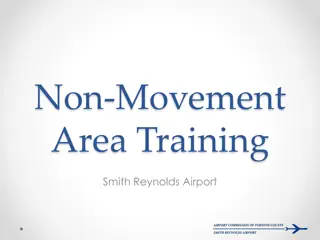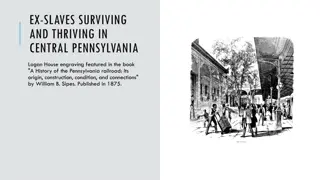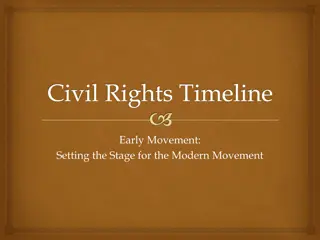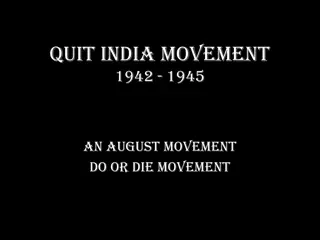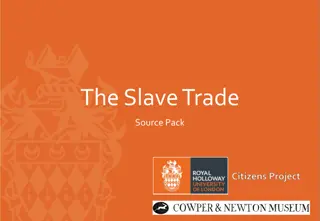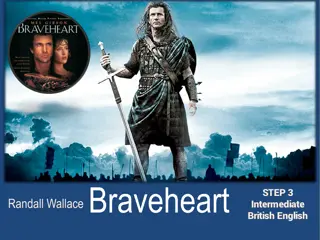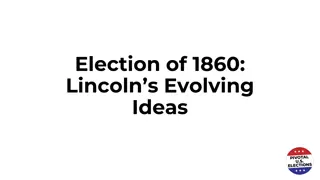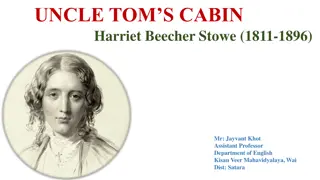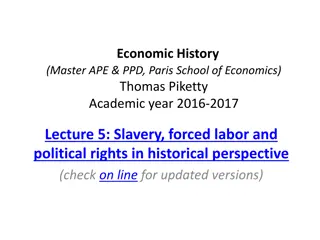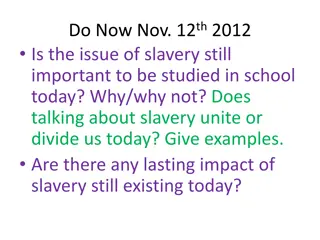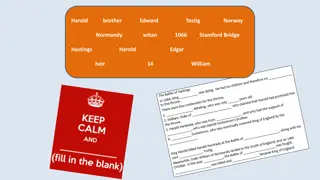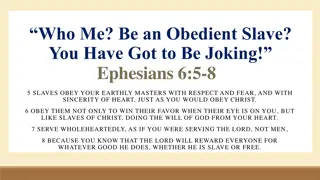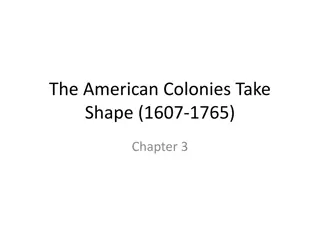The Journey to Abolishing Slavery: Understanding William Wilberforce & the Movement
Discover the historical context of slavery, the pivotal role of William Wilberforce, and the reasons behind Britain's decision to abolish the slave trade in 1807. Explore key events, debates, and societal shifts that led to the abolition movement, shedding light on the complexities and motivations involved.
Download Presentation

Please find below an Image/Link to download the presentation.
The content on the website is provided AS IS for your information and personal use only. It may not be sold, licensed, or shared on other websites without obtaining consent from the author. Download presentation by click this link. If you encounter any issues during the download, it is possible that the publisher has removed the file from their server.
E N D
Presentation Transcript
What would your reaction be if someone proudly said Yes, I still own a slave!
If you had asked that question in the late 1700s, the answer might have been very different from yours! In the 18th and 19th Centuries, some very rich people proudly owned slaves and the wealth of the cities in which many of them lived had been built on the slave trade. Before you begin this lesson, discover the definitions of: - Philanthropist - Humanitarian - Knowing these will help you today
However By the end of the 19th Century, some people were starting to believe that the slave trade was wrong. https://www.bbc.co.uk/bitesize/clip s/zm2gd2p As you watch this clip about the Wilberforce museum, think about the different reasons why some people had begun to change their mind about slavery by the end of the 19th Century.
Task: Look at page 1 of the document Wilberforce timeline : Organise the cards into a timelineof the key events from William Wilberforce s life. Earliest event Last event Bright Sparks Make a note of the top 5 events from the life of William Wilberforce. Make an illustrated timeline of his life.
Lots of people agree that William Wilberforce was VERY important in bringing about the abolition of slavery but other people would argue that Wilberforce was just one voice out of lots and lots and lots of other people who wanted to abolish slavery. Abolishing the slave trade couldn t have happened overnight Slavery was a way of life, and people in Britain had been involved with slavery for hundreds of years by the 1800s.
So, why did Britain decide to abolish the slave trade in 1807? In the end, there were many reasons: 2nd task: Look at page 2 of the Wilberforce timeline document: There are 15 statements about why Britain eventually decided to abolish slavery. Sort the statements into categories, using the titles on the Abolition Categories document Bright Sparks Copy out the 6 category titles and copy the top reason for each section onto your page. Give each category a symbol picture to help you to remember it.
Which section has the most cards in it? So, why did Britain decide to abolish slavery?
Now that youve learnt lots of information about the slave trade, what are your thoughts on the recent events in Bristol, where a statue of a slave trader was pulled down and thrown into the harbour during a Black Lives Matter protest? Discuss your thoughts with your parents and carers: Here is a link to the details of the story: https://www.bbc.co.uk/newsround/52965665


